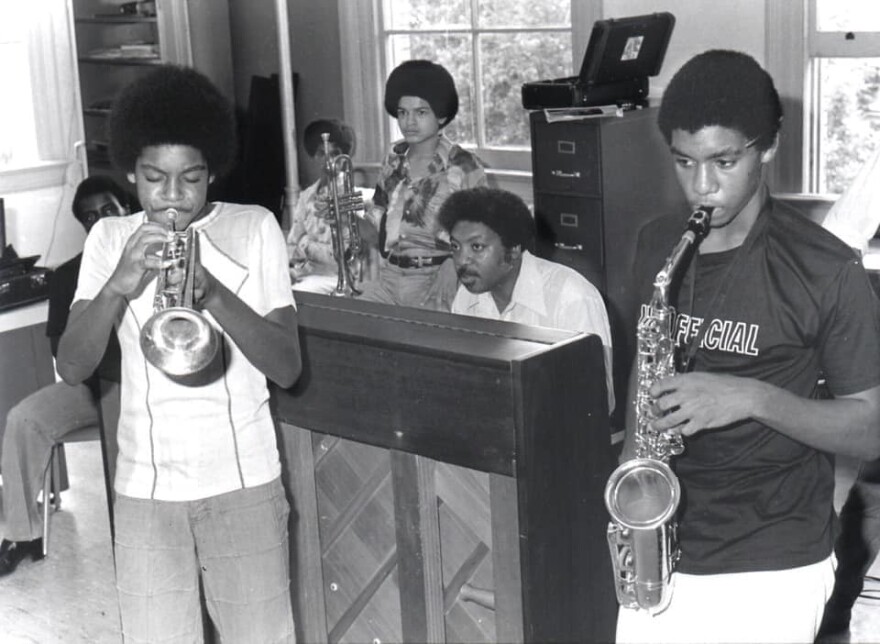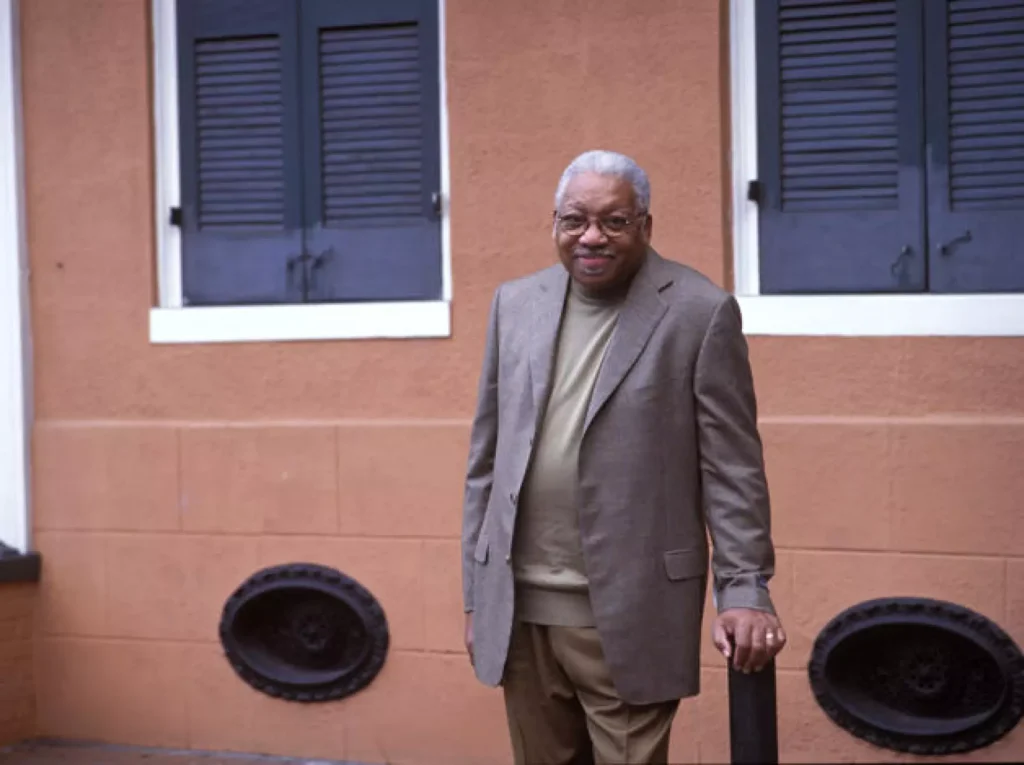Ellis Marsalis, Jr., pianist and patriarch of the world’s most famous jazz family, died on April 1 at 85. He’d been hospitalized with Coronavirus symptoms. New Orleans currently has the most concentrated Covid-19 death rate in the nation.
Ellis was born on November 14, 1934. Coming of age in the ’50s, he and several of his peers defied the status quo of New Orleans traditional jazz in favor of post-bop modernism. He was a founding member of the American Jazz Quintet, which also included Ed Blackwell, Nat Perrilliat, Alvin Batiste and Harold Battiste, all of whom pushed the stylistic envelope, especially in NOLA terms. But the city and its tourist industry never produced a critical mass sufficient to sustaining a bonafide modern jazz scene.
Ellis’s command of jazz styles centered on Duke Ellington as his tonal and spiritual center, but that came over time. On his 1999 solo album Duke in Blue, which is one of my personal favorites among Ellington tributes, he acknowledged that since Duke’s “music was not a part of the BeBop canon…it would be a few years down the road before I would grow into a state of unconditional respect for the music as well as the man.”

On his regular Friday night gigs at Snug Harbor on Frenchman Street, where he played for about 35 years before retiring in December, one was as likely to hear him playing Jelly Roll Morton’s “Dr. Jazz,” and King Oliver’s “West End Blues,” as standards by Ellington, Monk, Coltrane, or an original from his substantial body of compositions.
I rarely missed an opportunity to see Ellis, especially when visiting New Orleans, though I also saw him in New York, Lenox, Newport, and Boston. Last August, when I was there for SatchmoFest, I saw him in three different settings. Those were the last of about 25 times that I witnessed him in action. Whether he was leading his trio, quartet or quintet (usually with saxophonist Derek Douget and trumpeter Ashlyn Parker), he often surprised me with his tune selection, arrangements, and choice of notes and chords. Like Ellington and Monk, he was a compelling and often humorous force in his use of time and space. His attack was powerful and emphatic.
Speaking of surprises, Ellis wrote to me about 20 years ago after he’d read a cover story I’d written on his son Wynton in the Valley Advocate. He said he’d enjoyed the article, but wondered what I’d meant when I called Stanley Crouch, “Wynton’s Boswell.” Crouch was a chronicler of the trumpeter’s artistic development and author of the profuse liner note essays on his recordings. I wrote back with an explanation about Boswell’s famously detailed Life of Samuel Johnson, LL.D., and he replied a few days later with a note simply saying, “OK.” One assumes that the wry sense of humor so readily displayed by his famous sons surely originated at the family dinner table.

In a eulogy for his father posted on social media by Wynton Marsalis, he wrote, “My daddy was a humble man with a lyrical sound that captured the spirit of place — New Orleans, the Crescent City, The Big Easy, the Curve. He was a stone-cold believer without extravagant tastes. Like many parents, he sacrificed for us and made so much possible. Not only material things, but things of substance and beauty like the ability to hear complicated music and to read books; to see and to contemplate art; to be philosophical and kind…His example for all of us who were his students (a big extended family from everywhere), showed us to be patient and to want to learn and to respect teaching and thinking and to embrace the joy of seriousness. He taught us that you could be conscious and stand your ground with an opinion rooted ‘in something’ even if it was overwhelmingly unfashionable. And that if it mattered to someone, it mattered.”
Ellis Marsalis, Jr. nurtured not only music and worldliness in Branford, Wynton, Delfeayo, and Jason, but in other Crescent City charges like Terence Blanchard, Big Chief Donald Harrison, Nicholas Payton and Harry Connick, Jr. He was on the faculty at the University of New Orleans and Xavier University, and at the grass roots level he guided aspiring players at NOCCA, the New Orleans Center for Creative Arts. At Musicians’ Village, a bright spot in the city’s post-Katrina resovery, the performance space is known as the Ellis Marsalis Center for Music, an aptly named venue for a beloved hometown hero.

